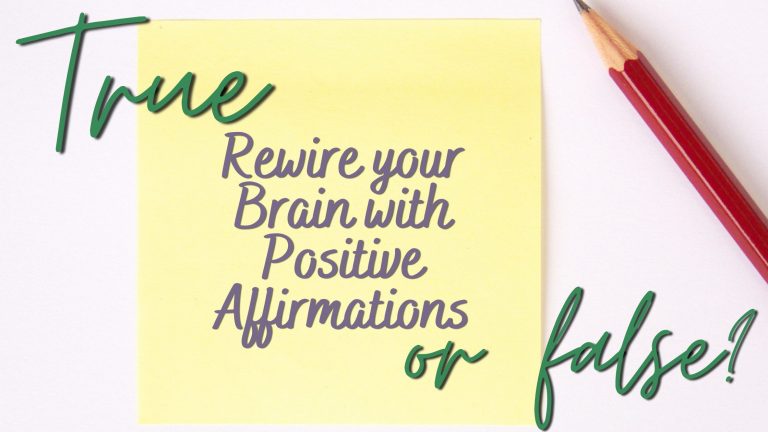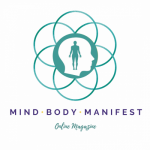
Let's Talk About Affirmations
Most people will have heard about affirmations, often being sold as the solution to life’s problems. The easy way to manifest your dreams. Sounds so simple and appealing to just say a few words every day and all your dreams come true. Can it possibly be that simple?
The word Affirmation is defined as ‘the assertion that something exists or is true.’ This is exactly how self-affirmations are used today, they are positive statements that remind us what we are capable of, to remind us of the truth about ourselves. They are designed to challenge negative or unhelpful thoughts.
Self-affirmations (more commonly known as ‘affirmations’) have been around for a long time and are not just a new-age trend. They’re in a way related to the use of mantras, which are religious poems or sayings used mainly by Buddhists as chants. However, in their current form, self-affirmations are primarily attributed to the French psychologist and pharmacist Emile Coue from the early 20th Century. Through his work treating patients, he noticed the ideas that a person’s mind are most occupied with will become reality. So when he administered medication to patients and they believed they would get better, they did. This led him on to develop a form of autosuggestion, asking patients to repeat the words.
“Everyday, in every way I’m getting better and better”
He also discovered that for this to work the patients needed to believe the words and that just saying them without the belief meant they would not work. There has been a lot more research to expand the work of Coue and to explore further the concepts related to affirmations. In late 1988 Claude Steel proposed the theory of self-affirmation. His theory states that the goal of the self-system is to maintain the overall integrity of the self. Self-integrity is the need to maintain the narrative of being a good and moral person and when this image is threatened, a person will react in a way to restore self-worth. This can be in a defensive response that can show up as behaviour such as belittling others, being in denial, and using drink or drugs that will help cope with the threat.
Steels theory has been developed and clarified over the years by a variety of studies and reviews in psychology and neuroscience. Studies have shown the benefits of self-affirmations, such as;
- Decreased stress levels
- Increasing well being
- Improve academic performance
- Help people become more open to behaviour change, i.e habit change
Scientists have carried out various studies to show that certain parts of the brain that are involved in the reward behaviour systems are activated when self-affirmations are practised. Which are the same centres that are activated by pleasurable experiences such as food, intimacy and alcohol. Researchers have been able to visualise this process by the use of MRI technology.
There are also studies that show they don’t work. There isn’t a definitive answer to whether or not affirmations work. There is a factor that will determine the success, that is the underlying belief. Using affirmations that directly conflict with limiting belief will mean that they don’t work. When you tell yourself, I will/can do it but your underlying limiting belief contradicts it, the inner voice will say, I don’t believe it and so it won’t actually help to keep saying it. The underlying limiting beliefs need to be resolved first. There is also evidence to show that if you have low self-esteem affirmations can make you feel worse because they create conflict between the positive state you want to achieve and the negative state that you are currently experiencing.
As there is evidence to show they can work, they can help people in certain situations. Ultimately it’s up to you to decide if they help or not. If you would like to give them a go here are a few tips on writing your own affirmations, as they will be much more likely to work when you are using your own language that is already familiar than using words that don’t resonate with you.
- Decide on an aspect you want to work on improving in your life
- Write your ‘I AM’ statement in the present tense using only positive language; For example, say ‘I am healthy’ don’t say ‘I am not ill’
- It’s important to use emotion when creating and using affirmations as it will enhance the benefits.
- Ensure that there is an element of belief and that it is achievable, remember if you don’t believe it’s possible it won’t happen.
So give it a try and see how you feel about them. Remember there is no one solution that fits all. If it doesn’t work for you there are plenty of other techniques for you to try.
Shereen is a scientist turned mindset expert, specialising in helping women find their inner happy! After completing a masters in Medical Microbiology and working as a researcher for the London School of Hygiene and Tropical Medicine, she found her true purpose helping overwhelmed women find inner peace, purpose and another way of life.
She teaches women that life doesn’t have to be
❌ a struggle
❌ a sacrifice
❌ about putting others first
Happiness isn’t about
❌ looking to other people
❌ being perfect
❌ feeling ecstatic all the time
It’s about finding INNER peace, a way to be with your own thoughts without fear, without worry, without your mind moving a million miles an hour.
Before you can change your life, you need to change your thoughts. It’s not about the big changes but taking small steps in the right direction.
It’s a noisy world out there, there are so many coaches shouting their message at you, Shereen is not loud, she’s not bold, she’s all about bringing the calm into the chaos. AND she’s all about breaking through the noise, the bull to give you the SCIENCE behind your happiness.
Contact Details
Email: info@askshereen.co.uk
Website: www.askshereen.co.uk
Facebook: www.facebook.com/askshereen1
Instagram: www.instagram.com/askshereen






